|
It’s been a tumultuous month in the world of bucket list experiences. The New York Times art critic ran a story about the sheer and utter disappointment of seeing the Mona Lisa, glassed away from the masses of crowds expecting something more...transcendent. Asked on national radio about my own experience with Leonardo’s masterpiece, I recalled seeing it many years ago, and feeling distinctly underwhelmed: “I thought there would be God rays and confetti, and angels would be singing with harps.” If I didn’t know it was regarded as the pinnacle of artistic expression, I would have walked past it, marvelling at plenty other works in the Louvre that would better match that description. The subject moved onto travel experiences that are disappointing. Each to their own, but there’s really only a few factors that will make an activity or destination disappointing:
All this to say: The experience did not live up to your expectations. The higher your expectations, the higher the chance that the destination or activity will disappoint you. Reality simply can’t compete with your imagination. And I can’t blame anyone for having an imagination stoked by the most perfect of all scenarios. On television shows, in travel articles, in books (ahem), you rarely see or hear about crowds, costs, and crap weather. The sky is mostly blue, and the animals always show up. It is very rare that everything comes together exactly as it does in the brochures, and yet the marketing of peak experience does no favours to your expectations. You’re being set up for disappointment, so better to have no or limited expectations to begin with. Is that it? No wonder my head is steaming. One of the tools proposed to combat the scourge of overtourism is Responsible Marketing. This would require tour operators and destination marketing organizations to use real people in real situations, not models beneath a Photoshop sky. Imagine if casinos were restricted to responsible marketing? Instead of hot couples smiling as they win at the roulette table, you’d see leathered alcoholics flushing away next month’s rent. Any activity that depends on good weather is particularly vulnerable to unmet expectations. Nobody wants to visit a beach in a hailstorm, ski on a mountain without snow, or get rained on during a parade. My biggest disappointment is the northern lights – a dreamy bucket list experience that is particularly weather dependent. Ten times I should have seen a magical natural fireworks display in the sky, and ten times the sky was overcast, or the solar ions weren't firing, or the sky lit up the day before I arrived, and the day after I left. Ten times in the freezing northern winter, including trips to Whitehorse and Yellowknife during peak aurora-watching season. Eventually I did see the northern lights, but compared to all the alluring photographs and stories, witnessing a slight pulsating green fog in the frigid, early morning sky (few people know that the best time to see the lights is well after midnight) was a let down. At least I hadn’t flown in all the way from Japan, unlike the disappointed aurora-watchers around me. The global bucket list took another hit this month with the chaos surrounding One Ocean Expeditions. I’ve worked with this Squamish-based company for several years, having visited Antarctica, crossed the Northwest Passage in the high Arctic and more recently taken my mom and daughter to remote islands in the Atlantic on their wonderful boats, guided by their wonderful crew. I’ve recommended the company at dozens of talks and in my books, and was shocked to hear they’ve been shipwrecked with financial difficulties. Passengers were left stranded shortly before an Antarctica sailing, most support staff have left the company, and information from the permanently closed head office to hundreds of out of pocket clients has been cryptic and scarce. The source of the issue appears to have been the damage that occurred to one of their Russian leased vessels in August 2018. There are competing claims as to who was responsible and should foot the bill, and as a result the Russians withdrew their ships from One Ocean’s service. This sent the company scampering to fill exist bookings on their single remaining ship, and in all likelihood broke the sea camel’s back. The company’s mysterious restructuring has been devastating for their amazing staff and crew, many of whom are owed tens of thousands of dollars in wages. It has been devastating for passengers around the world who have footed up to $14,000 per ticket, and have no travel insurance recourse to get their money back. It has been devastating for the Royal Canadian Geographic Society, who benefitted from One Ocean as a major sponsor, and it has been devastating for polar tourism. One Ocean did vital, generous and important work for the Arctic and Antarctica, supporting scientists, educators, communicators and students. I remember telling passengers that One Ocean did not just help us tick Antarctica off our bucket list, the company had helped us become ambassadors for a truly incredible, vulnerable and oft-misunderstood eco-system. Despite hope that a new financial partner will save the day, the damage to the brand and betrayal of trust of both clients and crew is, in all probability, fatal. Despite some wild rumours swirling around, I do believe One Ocean had a wonderful heart. Operating at the mercy of the roughest of natural elements, it just needed a better business brain. Here's hoping for smooth waters and easy sailing ahead for passengers, crew, company and the polar region itself.
0 Comments
I was recently invited to speak at the annual leadership conference for Coast Hotels, which took place at the Coast High Country Inn in Whitehorse. The theme of the event was Bucket List, and so naturally, I felt right at home. Since it’s January, and Whitehorse is the most accessible northern city to see the aurora, especially from Vancouver, I brought my Dad along for the ride. It’s been his dream to see the aurora since watching an 80’s movie called St Elmo’s Fire, which doesn’t feature the lights at all, other than, as I write in my book, the “light going out of Ally Sheedy’s acting career.” No offence to Ally Sheedy. Or Andrew McCarthy, an actor in the movie who is now an editor-at-large for National Geographic. #Everythingisconnected. My Dad and I had previously spent five nights in Yellowknife and saw no lights, but we did kinda-sorta see the aurora (if you squinted just so) in Hay River after flying over with Buffalo Air, but never got the full razzmadaddle. Whitehorse would be another kick at the aurora can. What’s more, Coast had arranged for attendees to tick off a full blown Whitehorse bucket list, including dogsledding with Muktuk Adventures (as featured in my books), slurping back the Sour Toe Cocktail brought down from Dawson City, and dipping in the thermal springs of the Takhini Hot Pools. Throw in some elk sausage and Arctic Char from Burnt Toast, my favourite restaurant in the city, and you’ve got a comprehensive winter Whitehorse bucket list covered! My Dad and I finally see the light We arrived via Air North, which is the only airline I know that serves hot baked cookies, refreshments at the gate, and affordable flights to a northern city. Settled into the Coast High Country Inn (which is owned by the same folks who own the Best Western Gold Rush Inn, so they have you covered), we took off for our first shot at seeing the lights at a remote aurora viewing cabin. Fire pits were burning, the tent cabins were heated and cozy, and the sky cleared nicely. The aurora report gave us just a 4/10 chance at seeing a 4/10 display, but sure enough, green waves began to pop on the horizon. No fireworks, but fine enough. That we threaded the needle on our first night in Whitehorse is a testament to Coast marketing director Sarah Kirby-Yung’s delightful optimism trumping my Dad’s northern lights jinx. “Can we tick this one off Dad?” I ask? “Yes we can.” And so we did. Unless you're the lead dog, the view's all the same Racing a dogsled on a frozen river is pure bucket list too. I’ve had the good fortune to dogsled with Muktuk Adventures filming an episode for my TV show, and researching a chapter for my book. The happiest puppies on the planet were lined up and rearing to go on our arrival, and off they go, running along the side of the Takhini River, pausing only for breaks and cuddles from Muktuk’s caring staff. Go dog go! It was the highlight of the trip for my Dad, which speaks volumes about the quality of the experience (and perhaps the performance of the aurora as well). Easy listening, easy reading Your lips must touch this gnarly looking toe! If only I could do all my book signings at a bar, beer in hand. Every attendee received a signed copy of my book at an evening event, soundtracked by a three-piece jazz band, and the arrival of the notorious Sour Toe Cocktail. It’s the fourth time I’ve had someone else’s severed toe in my mouth, although this time I think some of it flaked off and got stuck in my teeth, which continues to make me gag just writing about it. I got my Dad to join the club too, the toe stubbornly refusing to slide down the tumbler of Yukon Jack to touch his lips. As the Toe Captain will tell you: “Drink it fast, or drink it slow, but your lips must touch this gnarly looking toe.” Feeling good on stage for Coast Hotels The Wooden Skyscraper of Whitehorse After finally getting a decent photo of Whitehorse's iconic wooden skyscraper, Tourism Yukon's Jimmy Kemshead drive us along the Alaska Highway to check out the Mount Sima Ski Hill outside of town, and the scenic taiga on the drive to Carcross. Our final night featured a soak in the Takhini Hot Pools, a natural thermal spring located 25 minutes drive from Whitehorse. It was a late night soak, well enjoyed by all and spiced (and chilled) with a half-naked roll in the icy snow. As usual, the travel buzz moment came when I least expected it. Our bus got stuck in the ice in Takhini’s parking lot, and while the driver revved and tried to roll free, the cold night sky burst forth with stars, falling meteorites, and the wispy dance of the aurora herself. Not quite green, but a large distinct light flickering across the dark sky. Eventually we managed to free the bus by lining up and pushing it out in reverse. Rescuing a passenger bus beneath the northern lights in the Yukon? Now that’s bucket list.
When we last caught up with travel-fanatic Rus Margolin, he had just been to over 100 countries. Well, he just ticked off his 200th. I met Rus at Arctic Watch, one of the highlights on The Great Canadian Bucket List, and the kind of remote shore where rather interesting people wash up. For example, former-bond traders from New York who decide to visit every country in the world. Many years ago, I remember telling a girl in Hungary that I was travelling around the world, and without missing a beat, she asked me: So, what have you learned?” I caught up with Rus for a conversation about travel, experiences, highlights, some places you might not have heard of, and what he has learned himself. Check out some of his incredible photos in the slideshow above. RE: I bet a lot of people ask you what your favourite country is. Does it drive you crazy? RM: It's pretty much the most common question. And the less travelled people ask it even more. And my typical answer is: It depends. Are you interested in culture, history, nature, landscapes, people, food? And so on… RE: Travel is so personal. I always tell people, “just because I had a great time in X, doesn’t mean you will.” Perhaps folks just want reassurance. I do like throwing in amazing countries they wouldn’t have thought of much, like Sri Lanka, and Cook Islands. RM: I do the same and go a step further - Mauritania, Greenland, Turkmenistan, Iran, Vanuatu. See how their eyes open wide in disbelief. Djibouti as well. RE: At this point, you could just start making names up! I’ve got a text box in my new Global Bucket List book about the amount of countries in the world. “The United Nations currently has 193 members; the US State Department recognizes 195. FIFA has 208 members because it takes into account countries that are governed by other countries but can still kick a soccer ball. Most sources give the number at 196.” How do you define a country? How many are on your list? RM: I have my own list of countries. To me a country is not a UN entity but more like a unique destination - with it's own culture, nature, people, history, geographic isolation, and its own government. You start with a UN list, add various former colonies and islands and territories, add a bunch of de facto independent countries and you get close to 300. Greenland, Cayman Islands, Transdniester, New Caledonia, Galapagos, Easter Island, Canary Islands - these are all countries to me. Here’s my full list of countries. RE: And is your goal to visit all of them? RM: Not the primary objective. I am interested in seeing the most incredible and unique places in the world, having incredible experiences while doing it, and meeting people from all over the world. Plus I like contrasts - one day you are trekking Rwenzori Mountains in Uganda, next week you are in Norway seeing Northern lights, next week you are clubbing in NYC and next week you are in the South American jungle. I am also still trying to see every possible animal migration and mammal species there is. RE: I found the richness of the experience can become overwhelming, like eating too much dessert. How do you keep it fresh? How do you prevent becoming a jaded traveller? RM: Alternate the experiences. When I got to "chateau-ed out" in France, I went hiking in Pyrenees. When the Western European democracy gets under your skin - you try Russia or Egypt. RE: I’m sure many readers will be asking themselves: how the heck does this guy afford it? Were you a Wolf on Wall Street? Do you have to make personal and professional sacrifices to travel with such dedication? RM: The fact is that travelling is actually often cheaper then living in a big metropolitan city. In many countries you can survive on $50 per day in relative comfort. The biggest expense of travel is airfare - which you minimize of you country to neighboring country, or allow for flexibility in finding cheap flights. You could lease a car in Europe for a long-term lease as cheap as 20 euro a day. South America, Asia, Middle East are all relatively cheap. Professionally it's definitely a huge sacrifice - but I’d rather look back at my life and think about incredible experiences than stare at a bank account or remember sitting in front of monitors and watching markets oscillate. RE: Oscillating in Transdniester. That’s a good title for a book. And I confess I’d never heard of Transdniester until you mentioned it! RM: In Transdniester you actually experience time travel. It's like going back to USSR - Lenin statues, rubles with hammer and sickle on them, beer in metal barrels sold in the streets. It's a completely independent country with its own government, money, military and police, language, sports teams. Just not recognized by UN RE: I just looked it up on Wikipedia just in case you were making it up! OK, so what country did you find the most welcoming, and what country was the most hostile? RM: For the most part I have to say that pretty much every country is welcoming. You always meet people who are proud of their country and want to show it to you. Iran was probably the biggest surprise in how open and friendly people were. Same for Cuba. Slovakia, Rwanda, the Pacific Island nations, Central Asia. Different culturally, definitely, but open arms everywhere. Perhaps maybe the Gulf Countries were a bit stuffy. But so are some states in USA. RE: Have you noticed any universalities among the nations? Is globalization as prevalent in the cultural sense as the media would have us believe? RM: Well, there’s cell phones. No matter how poor or isolated the country is - everybody has iPhones or smart phones of some sort, and most places have wifi. It was easier or find wifi in Egypt then in New York. RE: Even in Transdniester and Djibouti? RM: Transdniester absolutely. Djibouti, in the capital city. When I was camping in the desert, not so much. RE: You’re chasing migrations and mammals too. What’s your favourite mammal? Some of them can be quite elusive. Like the virtuous and honest politician (or so I’m told...) RM: I haven't met a virtuous and honest (or even either/or) politician yet. In the animal world - gorillas, orangutans, whales, grizzlies, elephants, lions are much easier and more enjoyable to deal with. RE: You take some incredible images (some of which I’ve used in my books). Do you have a favourite? The pic that always brings a smile to your face? RM: My top 3 stunning places, visually: Danakil in Ethiopia, Kamchatka in Russia, the Icefjord in Greenland. Most pictures bring incredible memories. That's the beauty of travel. Every country and city gets a real feel and taste and color, rather than just being a name on the map. Some of my favorite pics were from most insane experiences - like hugging a white baby seal in Canada, standing on top of Mt Kenya, stretching my arm toward a gorilla or whale shark, dancing my ass off in Ibiza during fluorescent spray-paint night. It's an endless list really. RE: So, you travel around the world. What have you learned? RM: Be open to other people and their views of life; be respectful of their cultures and traditions; try every food you can; take on all physical challenges; learn about everything and anything. Enrich yourself with knowledge and experiences, and then continue to repeat the process. The sky truly is the limit. RE: I totally agree. And what’s next? RM: A small trip to British Virgin Islands, then back to New York for DJ classes. And then: West Africa, Polynesia, Mongolia, India, more of Brazil and Russia
I just returned from the most incredible research trip cruising the Northwest Passage in the High Arctic. I was sailing on One Ocean Expedition‘s Akademik Sergey Vavilov, a Finnish-built, Russian-flagged by Canadian chartered expedition ship that is ice-strengthened for wild polar trips. It felt great to return to the Vavilov, which I sailed on in Antarctica last December researching my Great Global Bucket List book. Flying from Ottawa to Kangerlussuaq, Greenland, I’d be joining 88 other passengers from around the world. We boarded the ship and headed up the ragged coastline (80% of Greenland, the world’s largest island) is covered by a thick ice sheet), arriving in the town of Sisimiut. It was like stepping into Iceland, or Norway, or northern Sweden. From there we spent two days crossing the Baffin Strait to the Inuit community of Pond Inlet on Baffin Island. Quite a contrast between the communities of Nunavut and Greenland! In Pond Inlet I went to the cultural centre to see some demonstrations of throat singing, one-footed high kicks, drumming, dancing and other Inuit games. You can’t believe you’re in Canada, but the local Co-op takes Canadian dollars (of course) and remarkably, you can get fresh veggies every day. Everything fresh is flown in, and the prices reflect this accordingly. From Pond Inlet Captain Beluga (yes, that’s his real name) steered the ship north into the Lancaster Sound, and the start of the Northwest Passage. Now we were firmly on the trial of the doomed Franklin Expedition. With the discovery last year of the Erebus, the flagship of the 1845 expedition that vanished, there’s been a lot of news and interest into the fate of Franklin and his men. Forensic scientists recently confirmed signs of cannibalism on recovered human remains found scattered along the coast of King William Island. The Erebus and sister ship Terror didn’t get very far before sea-ice boxed them in for two years in a bleak, desolate place called Beechey Island. We visited the grave markers of three of Franklin’s men, lucky enough to have died of natural causes and not starvation. John Torrington, a 20-year-old sailor, was exhumed in the 1980′s and he’s been basically mummified by the permafrost. It was a bone chilling place, all the layers I was wearing didn’t stop the chill running down my spine. The stark landscape of the islands was contrasted by the lively crew and passengers, delicious hot meals, stocked Scotch bar and hot tub on board the Vavilov. Hiking the tundra at Dundas Harbour on Devon Island, life in the Arctic was distinctly more colourful. Arctic cotton, poppies, willow and lichen practically glows under a bright sun. The colours on a clear day are unusually pure, as you can see in the images above. It took a while to find the famously scarce Arctic wildlife, but it was worth it when we did. Two large polar bears feasting on belugas on the shore of Conningham Bay. Hundreds of thousands of sea birds nesting on the dramatic cliffs of Prince Leopold Island. Some of the kayakers managed to spot some narwhals. I was more swept up in the history of the Franklin Expedition. How early explorers into the Northwest Passage suffered is beyond comprehension. In solidarity, I fell down a flight of stairs on my way from the hot tub to the sauna. How we suffer for our quests! I’ll be writing more about this trip in the coming months, and it’s a terrific chapter in my upcoming book, The Great Northern Canada Bucket List (on shelves in February) as well as being featured in The Great Global Bucket List (on shelves in Fall 2016). Check out some of these incredible images taken by my talented photographer, shipmate and buddy Jeff Topham. Thanks to all my fellow passengers, One Ocean Expeditions, and the fabulous crew of the Akademik Sergey Vavilov!
|
Greetings.
Please come in. Mahalo for removing your shoes. After many years running a behemoth of a blog called Modern Gonzo, I've decided to a: publish a book or eight, and b: make my stories more digestible, relevant, and deserving of your battered attention. Here you will find some of my adventures to over 100 countries, travel tips and advice, rantings, ravings, commentary, observations and ongoing adventures. Previously...
July 2024
Categories
All
|


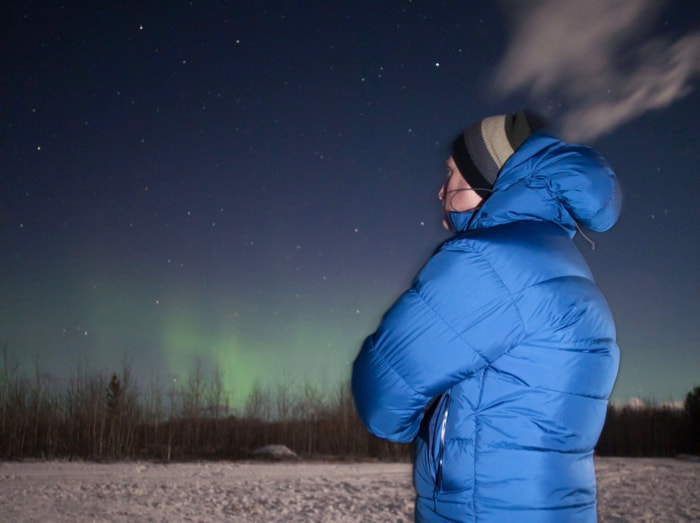
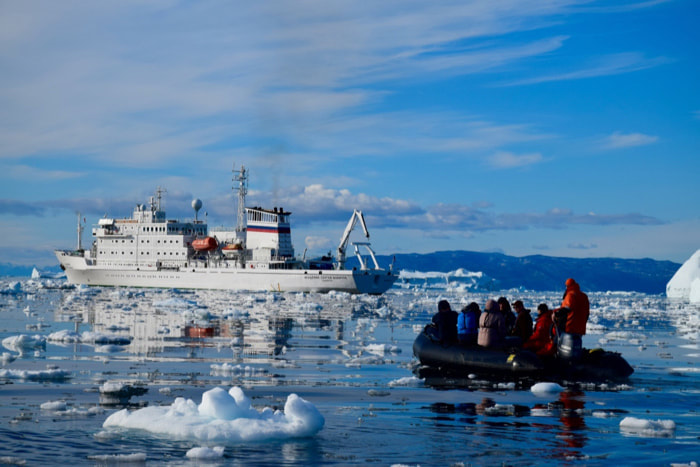
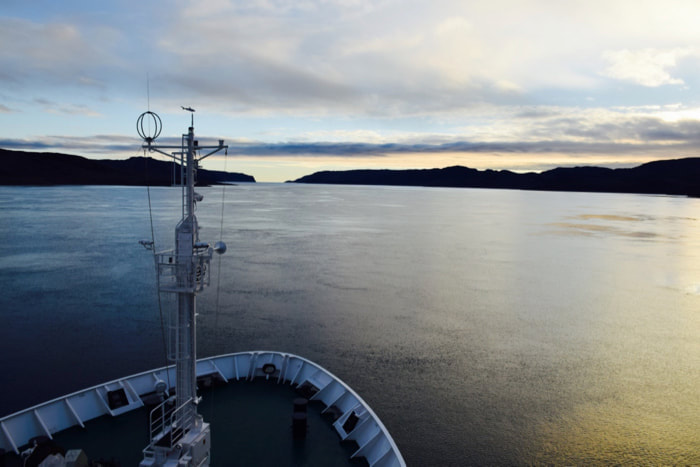
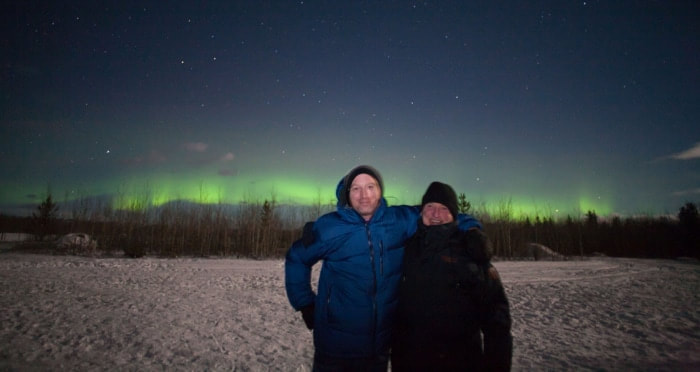
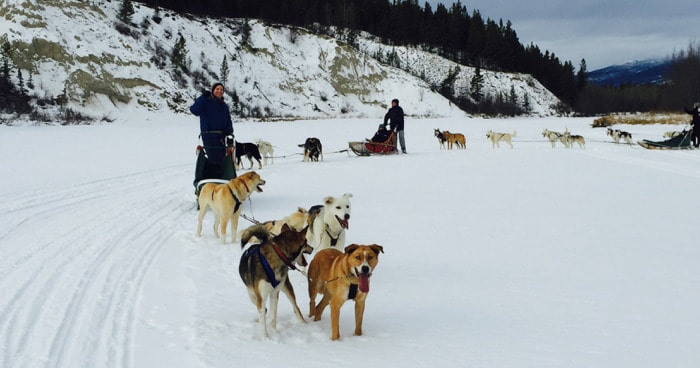
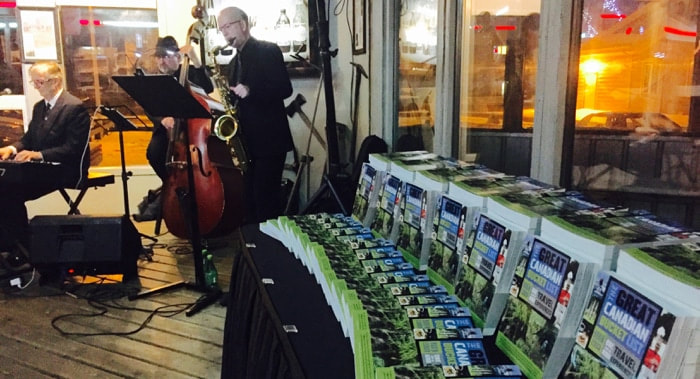
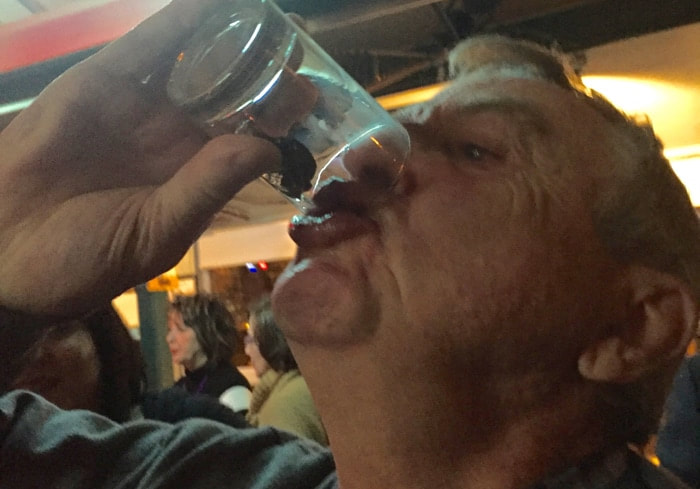
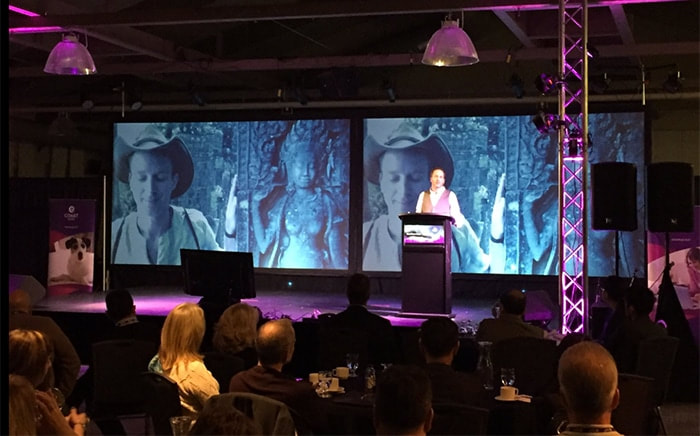
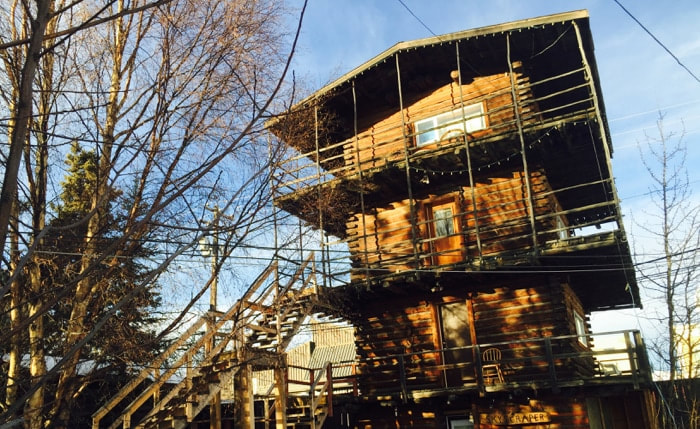
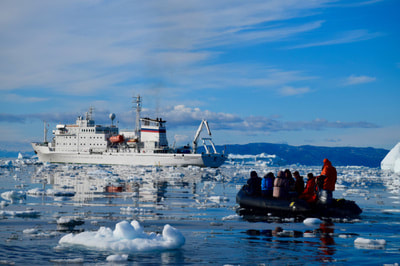
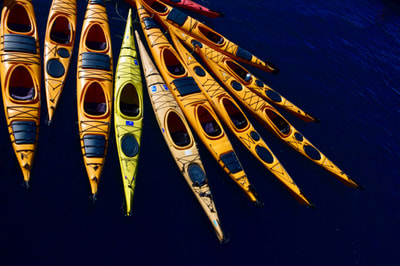
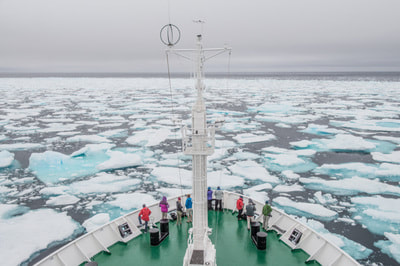
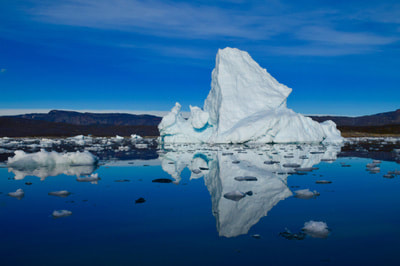
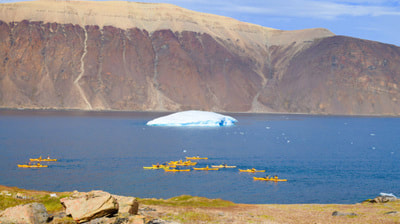
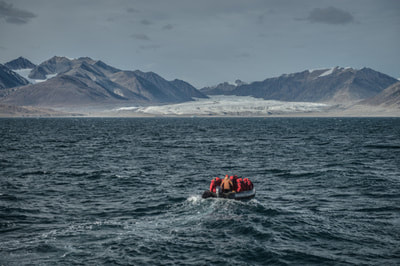
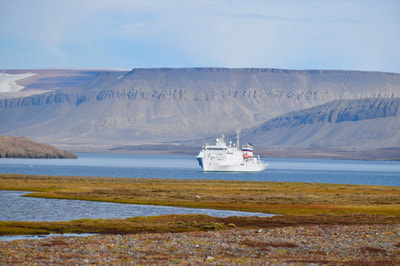
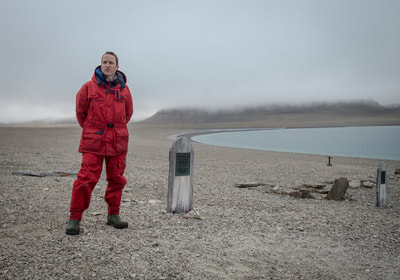
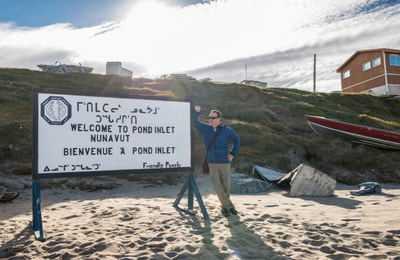
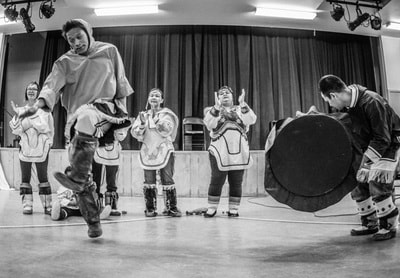
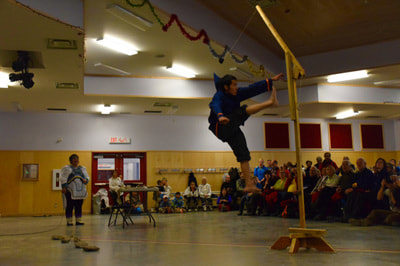
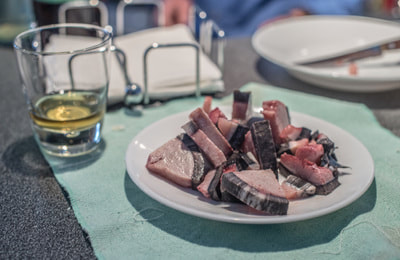
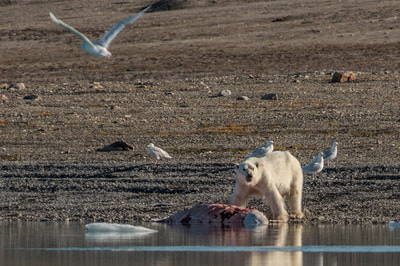
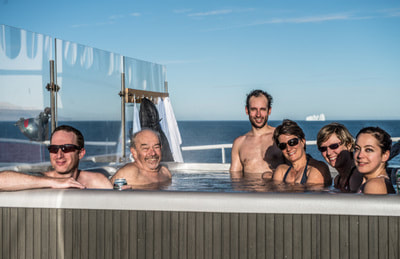
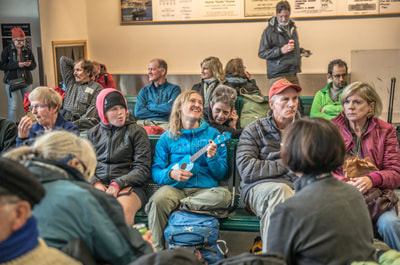
 RSS Feed
RSS Feed

